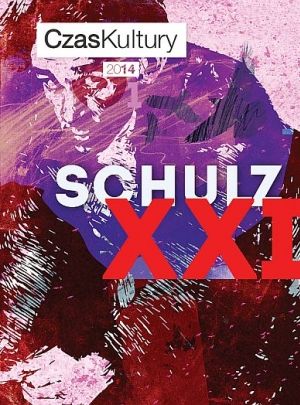
We kindly inform you that, as long as the subject affiliation of our 300.000+ articles is in progress, you might get unsufficient or no results on your third level or second level search. In this case, please broaden your search criteria.

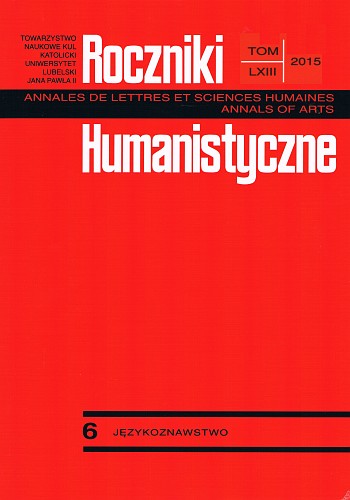
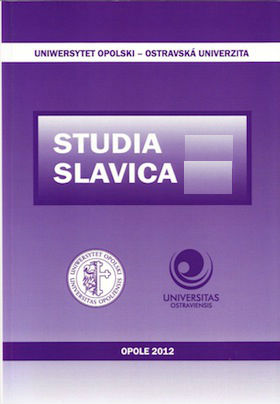
The article presents the issues that focus on the change of the „anthropological point of view” in J. Brězan’s prose. The change of the anthropological point of view resulted from the situation in which Brězan found himself after the coup. The instance of the focalizer, styled as the „other/foreign” (to the Sorbs and East Germans), gave the writer a chance to present in his works the problems tormenting both societies with a much greater force of impact.
More...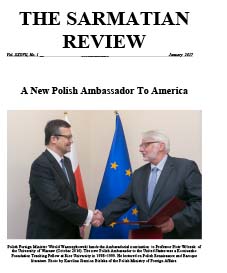
The cooking, woodcutting, and reading were equal elements of an integral life. We wanted books to have the passion and texture of clear-eyed originality. The notion of a book as a holiday from reality or touted “good read” didn’t do much for us. We wanted to encounter something that would move and surprise us. When I started to read the Polish poets––especially Czesław Miłosz, Zbigniew Herbert and Wisława Szymborska––in translation, I felt, “Ah, this is what I have been waiting for. This is it.” “It” meant the depth of history grounded in individual art so scrupulous it could take the measure of the monstrosities of the twentieth century.
More...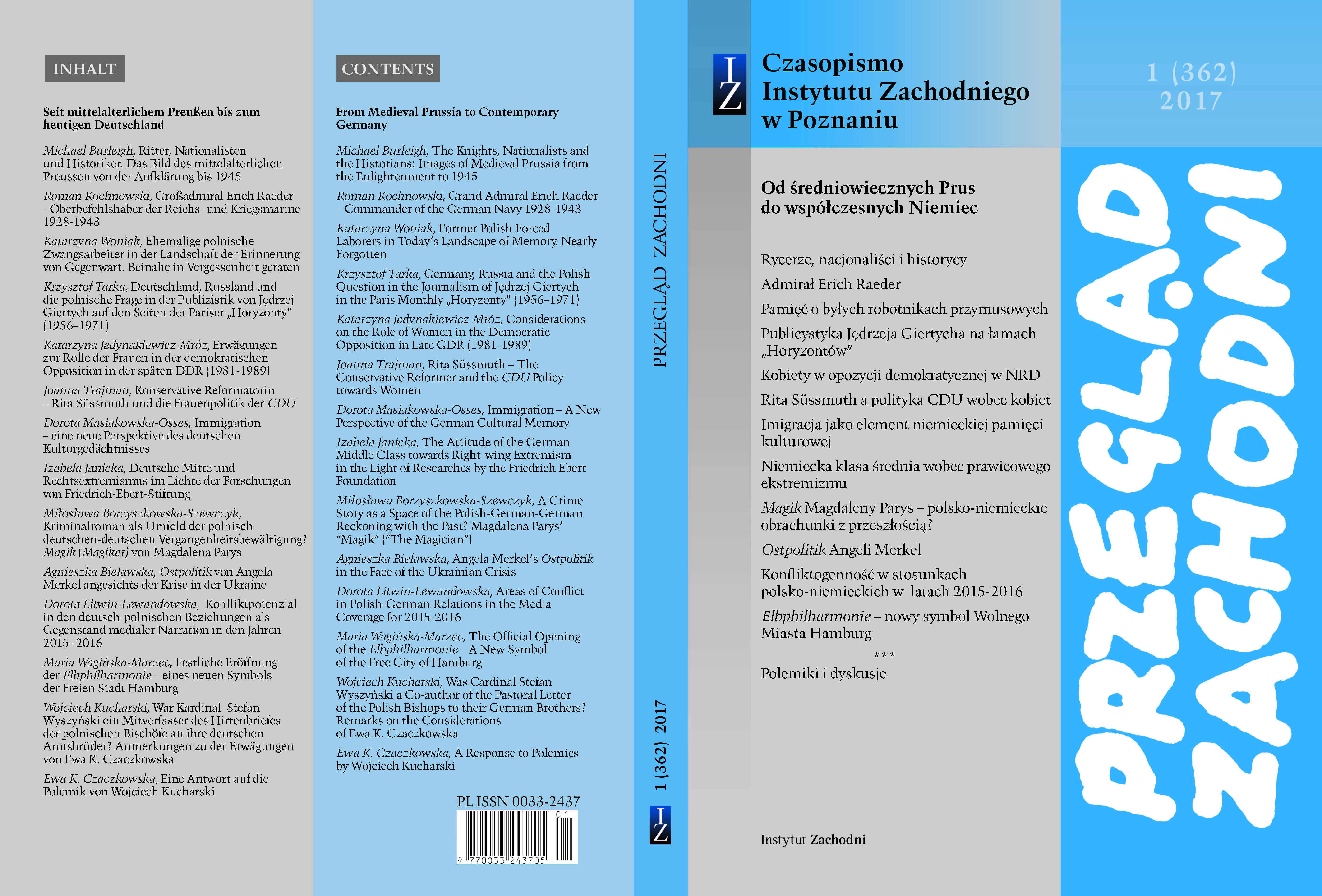
The article offers an interpretation of the crime story Magik” (“The Magician”, 2014) by Magdalena Parys. In this interpretation special attention is paid to the picture of contemporary Germany sketched in the text. Magdalena Parys who was born in Gdańsk in 1971 is a bicontextual Polish and German writer who as a child experienced the ‘Solidarity’ emigration to Germany (the one that took place in the wake of the martial law of 13th December 1981). History plays an important role in her novels and she presents cultural and social processes that take place in Germany. In the convention of a crime story she introduces a dispute on German-Polish and German-German entanglements and memory. “Parys-Berlin” (according to Justyna Sobolewska) can be perceived as a kind of lens of collective and individual peregrinations across contemporary Germany. This is also a story of polyphonic narratives functioning in social space that shows how representatives of a society which experienced subsequent waves of migration, cope with the past. In this cast of characters a significant part is played by the protagonists whose experience reflects Polish and German cultural complexity.
More...
The critical edition of the poem “Miesięcy dwunastu z swoich okoliczności opisanie” by 17-century author Jan Gawiński (approx. 1622–1684) is the first academic work on the poem. Twelve poems are dedicated to twelve months. The author presents nature, work in the field and farm, religious and pagan ceremonies performed at the time in the Polish countryside, from a perspectiveof a Baroque classicist. He links erudition (e.g. references to Vergilius, Jan Kochanowski, Szymon Szymonowic) with observations and often humour. The publication includes an introduction that provides the reader with a historical background and context to the piece, the description of the sources, translation, and editorial notes.
More...
Jeżeli ktokolwiek będzie w przyszłości podsumowywał rozwój i dorobek kultury niezależnej, powstałej w pierwszych latach po 13 grudnia 1981 roku, to można przypuszczać, nie zakończy on swej pracy z uczuciem szczególnego zadowolenia.
More...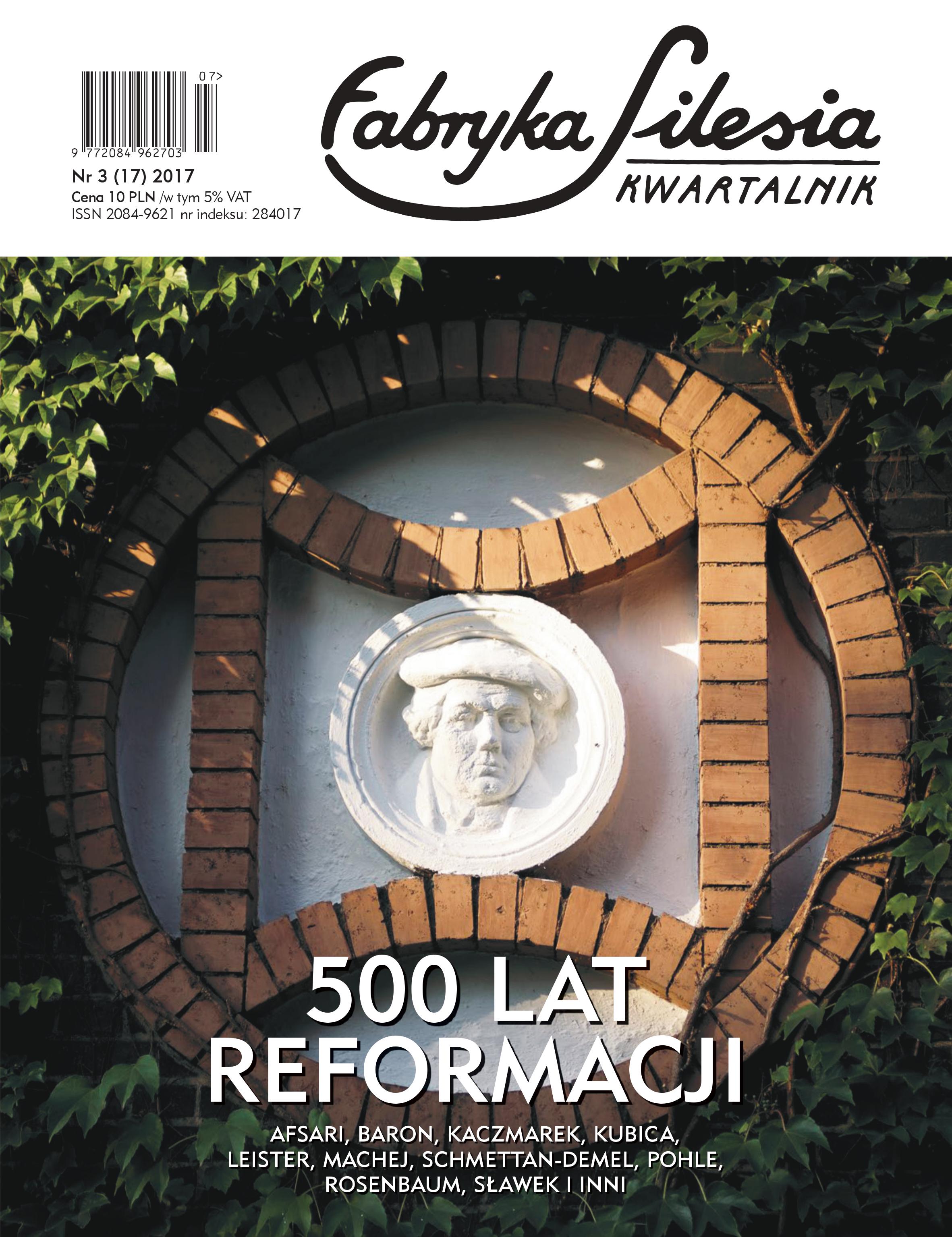
Tadeusz Szurman will use a quote from Józef Tischner’s writings as a motto for one of his poems.
More...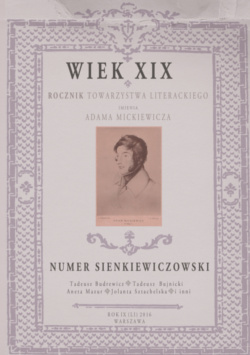
The article handles the appearances of the motif of insects and bugs in Adam Mickiewicz’s “Dziady” (“The Forefathers”). The term “bug”, no longer used in contemporary animal taxonomy, is in this case meant to be understood both literally and figuratively. Therefore the “protagonists” of the article are not just “nameless” bugs or insects, devoid of typological and species affiliation, as such are not found in Mickiewicz’s work, but rather examples of specific animal species, particularly insects (e.g. furniture beetle, fireflies), frequently referred to by the heroes as “bugs”. The article demonstrates the axiological motivation for the insects’ presence in the play. The insects “participate” in the game between good and evil, truth and falsehood, freedom and dependence. They indicate the value of affection, love, suffering, defiance, and servility.
More...
Sienkiewicz’s readers certainly known the writer’s favourite, archaically styled terms ‘folga’ (“relief”, “respite”, “indulgence”) and ‘folgować’ (“to follow”, “to allow”, “indulge someone/something”), etymologically derived from the German ‘Folge’ (“consequence”, “result”, “aftermath”) and ‘folgen’ (“to follow”, “to obey”, “to submit to”). They are found in Sienkiewicz’s texts more than seventy times, and not only in historical novels, where their use is motivated by the chronotope of the past. The theme of ‘folga’ grows in his work to the status of a kind of a leitmotif. Observing the chronology of the occurrence of the term, we can see a clear evolution: from a neutral term, to some kind of an idea or cultural topos. The article follow the function of this topos across the writer’s body of work, which by the end of “The Trilogy” evolves into an ethos of a national-societal vice. The topos of ‘folga’, shaped in the works of Sienkiewicz for decades, finds its culmination in the novel “Wiry” (“Whirpools”).
More...
The article presents contemporary German historical novels: “Measuring the World” by Daniel Kehlmann, “Ein liebender Mann” (“A Loving Man”) by Martin Walser, “Imperium” by Christian Kracht, “Koala” by Lukas Bärfuss and “Pfaueninsel” (“Peacock Island”) by Thomas Hettche. These novels criticise the popular myths of the 19th century: the myth of science, great authorities, colonial policy, fascination with exoticism, and romantic love. The new historical novel appears not only to be a critical project concerning past discourses, but also a diagnosis of contemporary historiography. Writing about the 19th century is a dialectic strategy: on the one hand, critically directed against the myths of the century, on the other hand, full of nostalgia, manifested in the return to the classic conventions of historical, travel, and adventure novels, which are employed by contemporary writers.
More...
“Notre Sienkiewicz”, an article published in 1927 by Jarosław Iwaszkiewicz in “La Pologne Littéraire”, he indicates the differing reception of the works of Sienkiewicz in Poland and abroad. He describes “The Trilogy” as “the Polish historic gospel”, at the same time stressing Sienkiewicz’s role in building the national myth and liberation tradition, as well as shaping the national spirit. It also analyses the problem of the relationship between the fate of the individual and the collective, and historical processes Sienkiewicz underwent. Iwaszkiewicz sees the singularity of Sienkiewicz’s writing in his constant updating of the issues tackled by his works. Iwaszkiewicz supports his view with the opinions of literary critics and the journalists (J. Kleiner, J.N. Miller, W. Horzyca et al.) published in “Wiadomości Literackie” weekly.
More...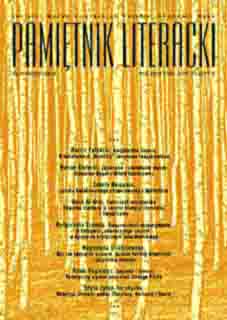
The present sketch is aimed at an analysis of the relations between a literary report and literature. In establishing those connections it is vital to pay attention both to the diachronic changes showing the way a report and its producers over a span of centuries became independent from literature, as well as to the changes in the genre’s poetics. A likewise important element of the analyses in question is a focus on the autothematic statements by the writers themselves (such as Melchior Wańkowicz, Hanna Krall, and Ryszard Kapuściński) who, reflecting on the frames of the genre, many a time touched the issues connected with journalistic and artistic forms interaction.
More...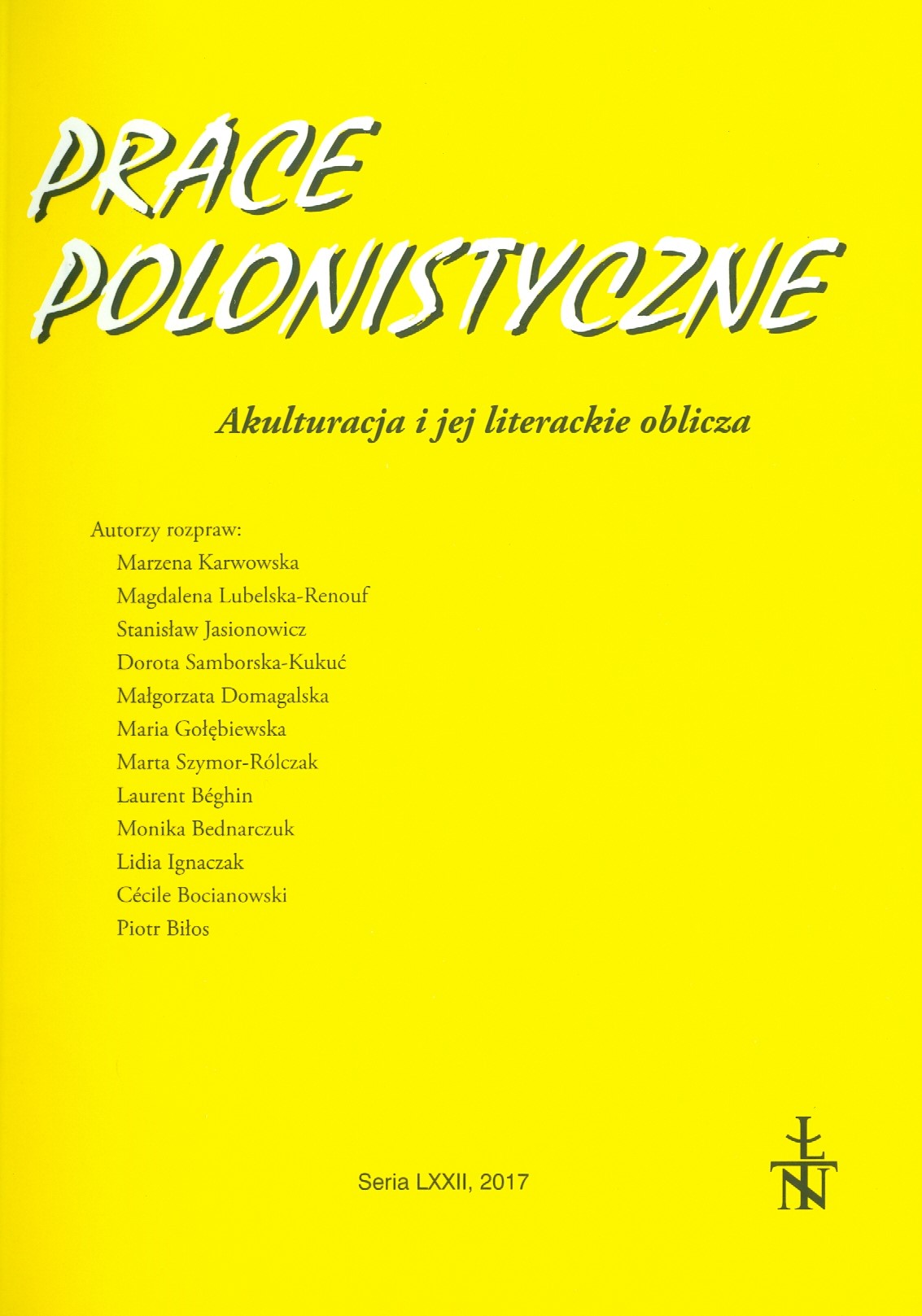
The article is a reflection on the symbols through which the modern experience of culturalbelonging is expressed and on the motivations behind their contestation. Examples ofselected themes that Marcin Świetlicki and Barbara Gruszka-Zych explore in theirwriting are used to examine the poetic quest to overcome feelings of alienation in one’sown cultural milieu. In spite of the differences between the two poets, both address theproblems facing the contemporary consciousness of Western man, split between the desireto complete the process of deconstructing his own universal “identifying signs” and theneed to creatively explore the process of symbolization itself.The issue of “internal acculturation,” as a particular case within the topic ofacculturation as a whole, is also correlated to examples drawn from Francophone poetry.
More...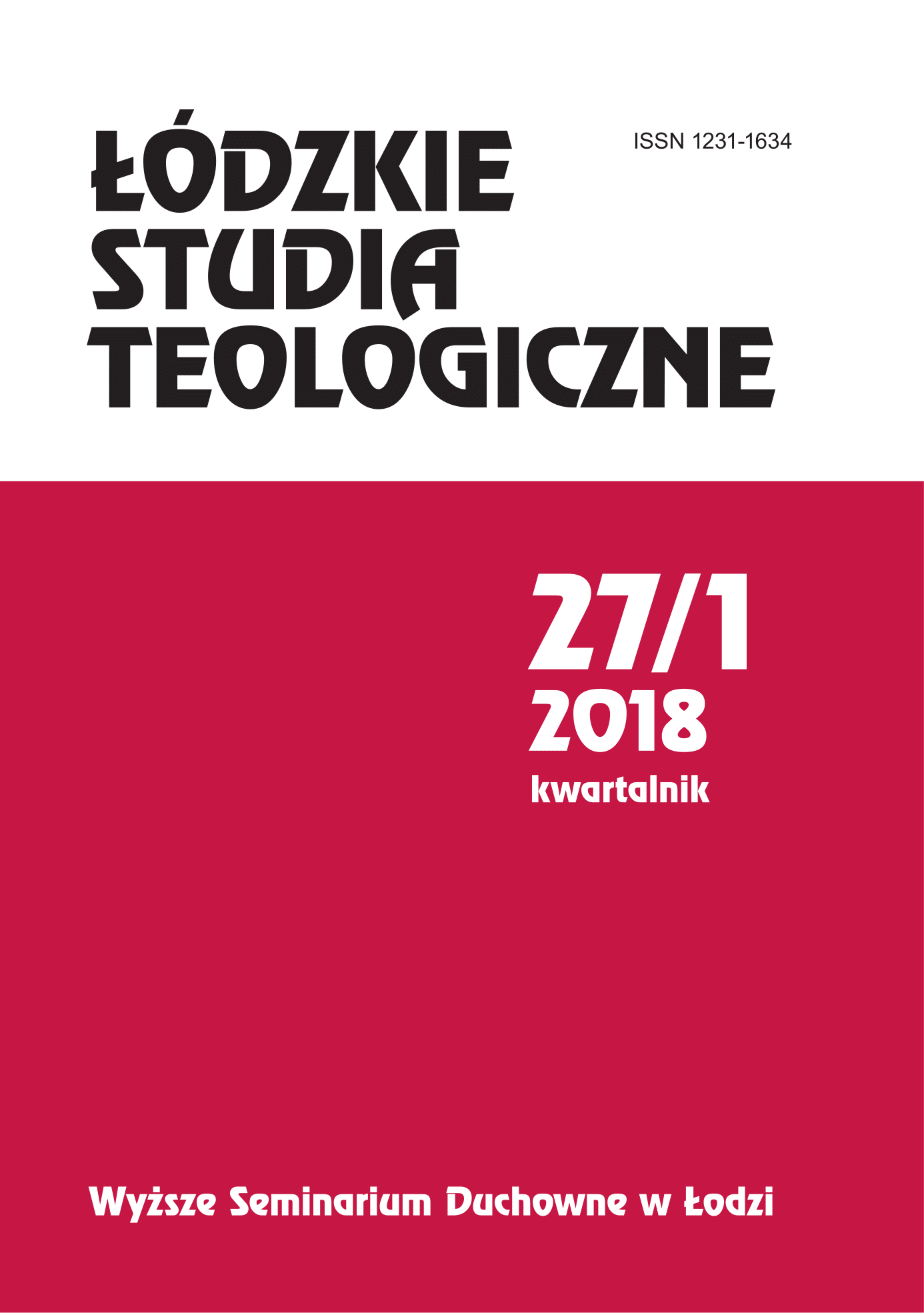
The text of the article focuses on Christian interpretation of Henryk Bardijewski’s stories from theseries “Wild angels…”. The text is an attempt to incorporate our own experience into the interpretationof the text, with particular emphasis on religious experience and faith. A combination of interpretativepractice with religious experience points out to individual perception of the text and recognitionof meaning. The analysis of the author’s stories in the metaphysical and mystical light enables usto discover a completely new meaning and spiritual values. Literature is a place where faith becomesa cognitive tool, which is an opportunity for theological perception of reality. Combining interpretationwith religious experience, one can apply Christian anthropology method, refer to hermeneutics and usesemiotic tools.
More...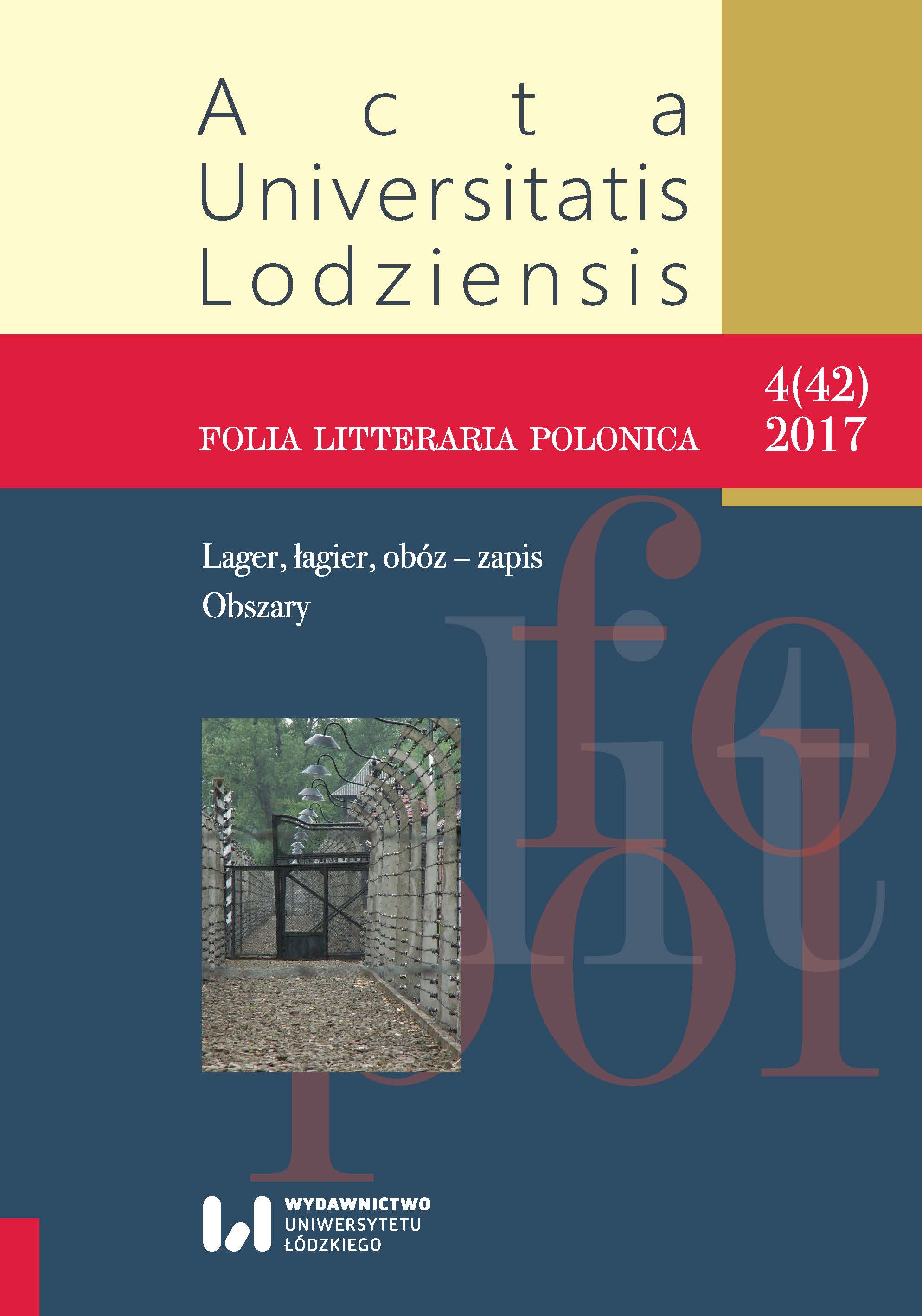
This article is a preliminary attempt to read the condition of survivors – those who were imprisoned in the displaced persons camps in occupied Germany just after the war. In this context author considers Tadeusz Nowakowski’s novel Obóz Wszystkich Świętych (Camp of All Saints), full of satire, grotesque and thoroughly soaked with sarcasm. The addition to Nowakowski’s vision is Tadeusz Borowski’s short story Bitwa pod Grunwaldem (Battle of Grunwald), as well as his poems from this time, e.g. Demokratyczne dary (Democratic Gifts), and also Jerzy Zagórski’s reports W południowych Niemczech (In Southern Germany), where the camps for DPs are compared to Henry Moore’s anthropomorphic figures sleeping in the tunnel. Separate reflections are devoted to the fate of Ida Fink, Shoah survivor, who was imprisoned in the Ettlingen camp. The writer mentions this time in the novel Podróż (Travel) and the interviews. Textual analyzes lead the author of the article to the conclusion that the narratives are proof of the inability to experience peace of mind in the time of freedom and generally the inability to return to pre-war times.
More...
The adventures of Dorota Masłowska, experienced between her novels Snow White and Russian Red and Honey, I Killed Our Cats, show a world where capitalism is the only way of organising reality. At the same time, it is a power affecting all types of relations: among people and between people and the world. The motif connecting Masłowska’s novels is the pursuit – through one’s writing – of liberation from the tools of the capitalist rule recorded and reinforced in the language. Attempts at comprehending this rule, undertaken always as an element of a writer’s ethos, are an extremely interesting path from destruction to praising conservatism and from combat for yourself (as defined by Hallward) – as an expression of a specific configuration of reality – to the singularity of a writer’s absolute. Taking this path requires a change to the use of two literary categories: grotesque and irony which remain Masłowska’s trademarks. At the same time, in her subsequent books grotesque and irony bring a new angle to her polyphonic writing. The author analyses the evolution of Masłowska’s writing making a (critical) use of the tools of postcolonial theory. She refers to the notions of “singular” and “specific” as used by Peter Hallward in his Absolutely Postcolonial. Writing between Singular and the Specific (2001). In his dissertation, Hallward presents two trends; a description thereof allows him for “the global and contemporary discrimination of fundamental approaches to our general conceptions of agency and context, self and other, politics and particularity.” Snochowska-Gonzalez refers Hallward’s categories to the subject of interest of the postcolonial theory (like freshly located and de-territorialisation, national determination and freedom from it). She develops the method of applying analytical tools presented in her article “Od melancholii do rozpaczy. O prozie Andrzeja Stasiuka” published in Studia Litteraria et Historica, no. 2 (2013).
More...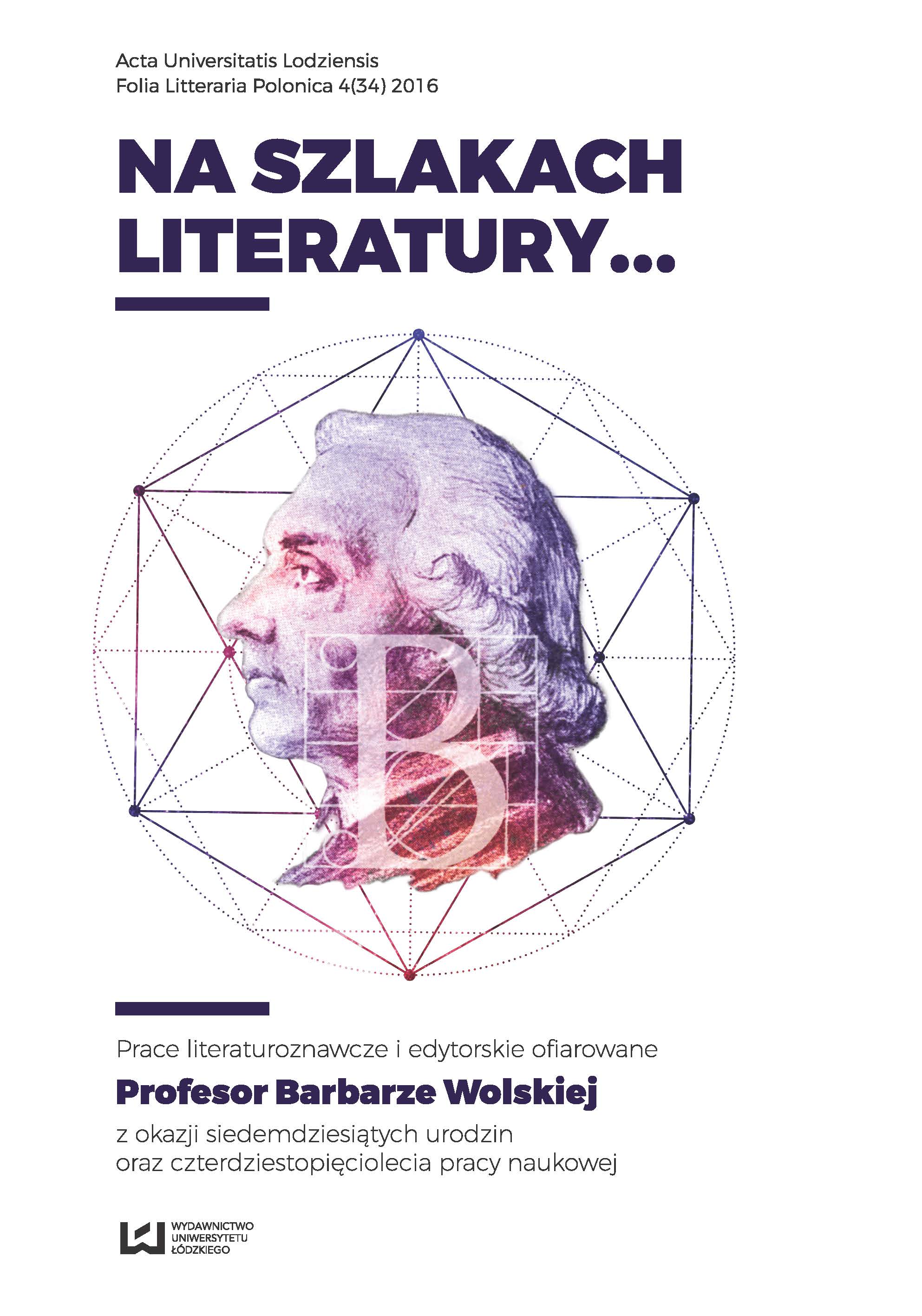
The paper is devoted to occasional laudatory verses which were written to honour princess Elżbieta Sapieżyna (née Branicka) and the members of her closest family – son Kazimierz Nestor Sapieha, General of the Lithuanian Artillery and brother Franciszek Ksawery Branicki, Great Crown Hetman. The begining of the article reminds of already known literary works containing complimentary images of the female aristocrat. The main object of author’s interest are pieces that have not been noticed by scholars of the eighteenth-century political writings. These are: anonymous ode written in 1784 in connection with arrival of Sapieżyna to Prienai (pol. Preny) in Lithuania and collection of four verses created by Wojciech Zacharkiewicz, who thereby added splendour to the Franciszek Ksawery Branicki’s coming to Warsaw for parliamentary sitting of the Great Sejm and to election of Kazimierz Nestor Sapieha for the Marshal of lithuanian confederation. The author discussed circumstances of the creation, main motifs of content and artistic composition of laudatory images of addressees. Furthermore he determined connections of these verses with then popular genres of occasional poetry and put Sapieżyna’s complimentary portraits in context of manners of creation women’s images in literary works of that time.
More...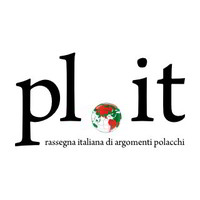
The article concerns the way in which modernist painter Witold Pruszkowski (1846-1849) drew inspiration from the poem Anhelli (1837), a work of the romantic poet Juliusz Słowacki (1809-1849) treating on the fate of a group of Poles in Siberia, political exiles after the Polish-Russian war (1830-1831). The research shows that the painter refers to Anhelli to query about identity, individuality, belonging to the tradition, as well as about the purpose and the sense of art. In Pruszkowski’s paintings the space of the poem becomes a paysage intime, an inner, emotional space. The painter brings out the symbolic potential of the poem and concentrates on imaginative, colourful aspects of the romantic work. The main imaginative themes of his paintings cross the border between the human world and what lays beyond it, referring to such topics as death, ghosts and mysterious landscapes (downs, dusks). The world of the Anhelli poem becomes an integral part of the whole work of Pruszkowski.
More...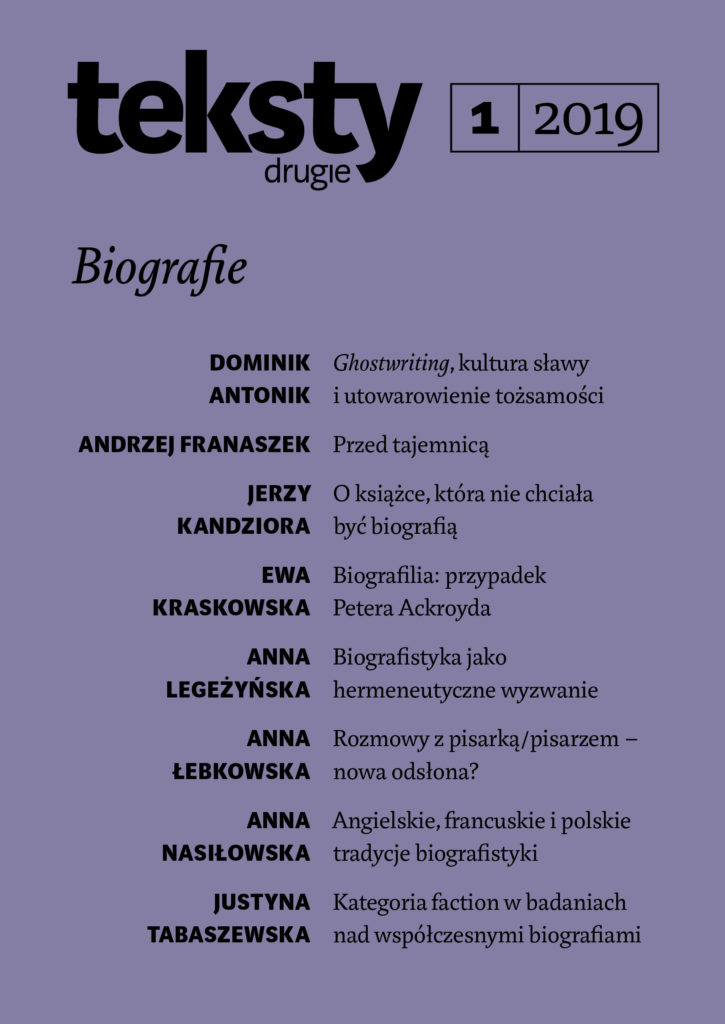
Śmieja reviews Anna Synoradzka-Demadre’s biography of the writer Jerzy Andrzejewski (published in 2017). He explores this work’s relationship to Andrzejewski’s own autobiographical experiments and argues that Synoradzka-Demadre’s choice of formal openness (in her title Synoradzka-Demadre refers to her work as a “contribution”) corresponds to the writer’s preference for sketch-like or draft-like open forms. Śmieja also questions Synoradzka-Demadre’s notion of “privacy” and suggests that it would have been beneficial to blur the boundaries between “private” and “public” and to consider instead the psychoanalytical notion of “extimacy”.
More...